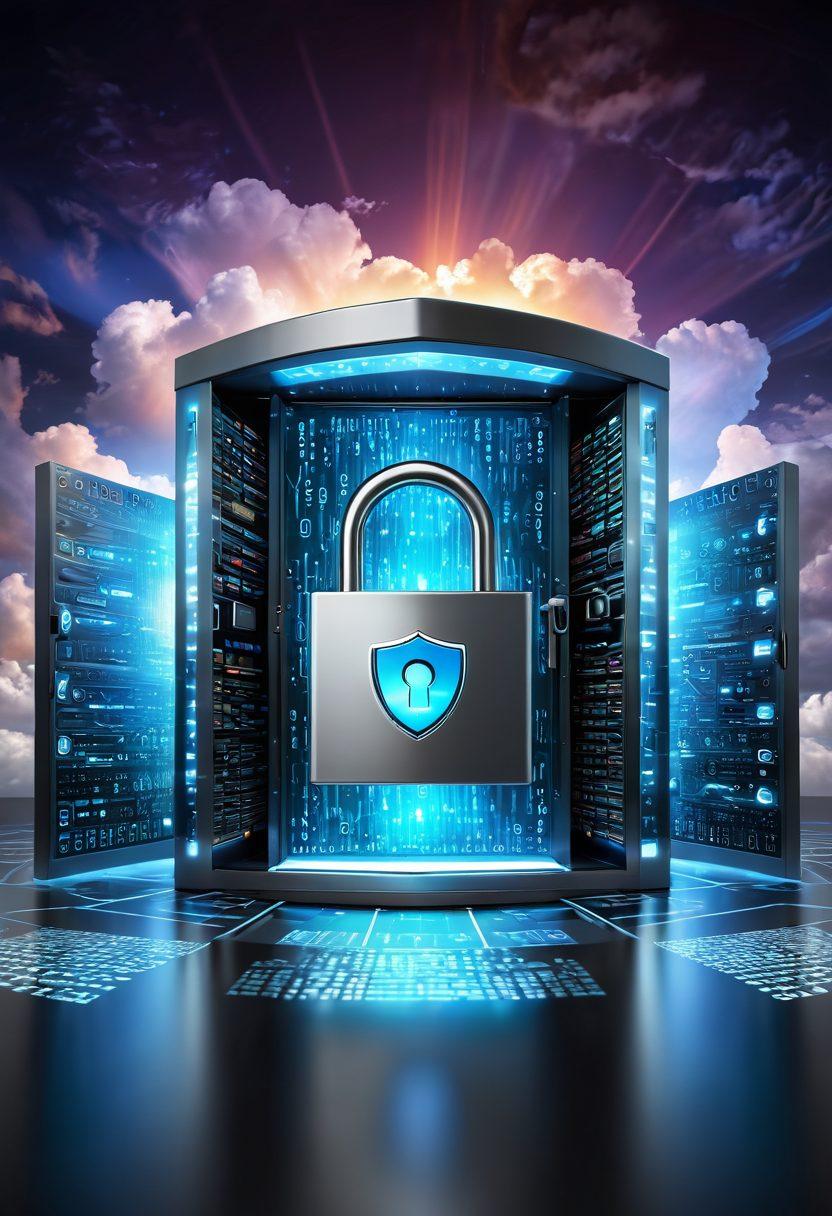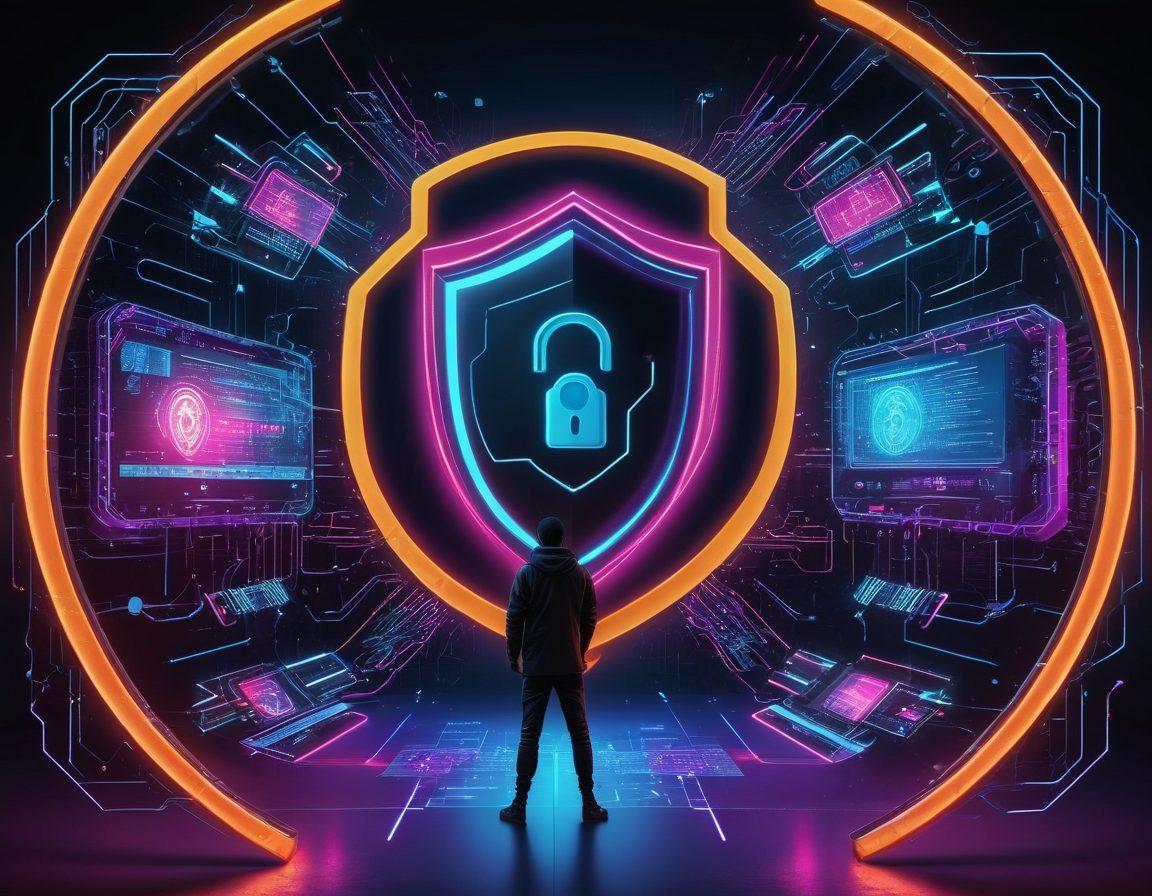Protecting Your Digital Self: Essential Strategies for Identity Safeguarding and Online Security
In a world that increasingly relies on digital interactions, mastering online privacy is no longer just an option; it's a necessity. Have you ever paused to consider how much personal information you divulge daily, often without a second thought? From social media updates to online shopping and even simple blog comments, our data is continually in circulation. With threats like identity fraud and data breaches on the rise, protecting your digital self is paramount. Let's delve into effective tactics that will bolster your identity safeguarding and enhance your online security, ensuring your virtual safety in today's cyber landscape.
When we talk about online privacy, one pivotal concept that arises is information security. Think about it: your personal data security should be as vital to you as locking your front door. Cybercrime prevention starts with understanding the risks associated with the internet. Do you remember a time when you received a suspicious email? That’s a classic case of social engineering—manipulating you into giving away sensitive information. By staying vigilant and recognizing these red flags, you can take the first step towards effective cyber protection.
Another essential tactic for mastering online privacy is embracing online anonymity. This can be as straightforward as regularly updating your passwords and using two-factor authentication. Consider this a digital fortress built to protect you from personal information theft. Additionally, employing a reliable VPN (Virtual Private Network) can mask your IP address, making it significantly harder for cybercriminals to track your online activities. Ask yourself, what would it feel like to browse the internet without the anxiety of someone peering over your digital shoulder? It’s time to take control of your browsing experience and reinforce your cyber risk management strategy.
To further enhance your internet privacy, implement identity monitoring services. These services can alert you to any unauthorized attempts to use your personal data, providing an additional layer of protection against identity fraud. Think of them as your personal digital watchkeepers, ensuring your sensitive information is safeguarded 24/7. Isn't it reassuring to know that help is just a notification away? Moreover, being proactive about data protection can give you peace of mind, keeping you one step ahead of potential cyber threats.
Lastly, let's not forget the importance of safe browsing habits. It’s easy to fall into the trap of clicking on enticing links or downloading unfamiliar attachments. A recent study revealed that simple awareness of internet safety protocols can prevent up to 75% of potential data breaches. So, why not make it a habit to verify the credibility of sites before sharing any information? Privacy rights are your entitlement; protecting them is your responsibility. By weaving these strategies into your online routine, you’re not just enhancing your digital privacy, you’re cultivating a culture of security in your life and community.
Navigating Data Protection: How to Keep Your Personal Information Secure
In our increasingly connected world, navigating data protection has become a critical concern for everyone. With every click, like, and share, we leave a digital footprint that can be hijacked by identity fraudsters and cybercriminals. Think about it—when was the last time you considered how secure your personal information is while browsing the internet? As we dive deeper into this subject, let’s explore effective strategies for ensuring your digital privacy and safeguarding your identity.
Imagine waking up one morning to discover that your personal data has been exploited without your knowledge. Scary, right? This is a reality for many who have fallen prey to data breaches and identity theft. Cyber protection isn't just about paranoia; it's a necessary shield in the age of rapid technological advancement. Consider adopting robust password practices, enabling two-factor authentication, and being mindful of the information you share online. What steps are you currently taking to protect your identity?
One of the most insidious threats in the realm of online security is social engineering. This refers to the techniques used by cybercriminals to manipulate individuals into revealing personal information. Ever received a suspicious email claiming to be from your bank, asking for your account information? This is a classic example of how your internet privacy can be compromised. By developing a keen sense of awareness and employing techniques such as identity monitoring, you can become an active participant in your cyber risk management strategy instead of a passive target.
Moreover, practicing safe browsing habits is vital in this digital era. What does that mean, exactly? It encompasses everything from updating your software regularly to using trusted VPN services that encrypt your online activity. By adopting these practices, you contribute to your overall personal data security and help diminish the risk of personal information theft. Remember, being proactive is often more powerful than reacting to incidents after they've occurred.
Ultimately, protecting your digital self requires ongoing vigilance and a commitment to information security. Monitor your accounts for unusual activity, understand your privacy rights, and educate yourself on the latest trends in cybercrime prevention. By firmly grasping the essential strategies for identity safeguarding, you're not just protecting yourself; you're also fostering a culture of online anonymity and virtual safety for everyone. Are you ready to take charge of your digital destiny?
Cybercrime Prevention 101: Essential Strategies for Virtual Safety
In a world increasingly reliant on technology, cybercrime has become an unsettling reality we all must face. Picture this: you wake up one day to find that your personal data has been compromised. Suddenly, your identity is not just yours anymore; it’s an open book for others to exploit. It's a nightmare scenario many have lived through as breaches and fraud cases continue to climb. So how can you keep your digital self safe and sound? Let's dive into the essential strategies for cybercrime prevention and online security that everyone should know about.
You might be wondering, "What does identity safeguarding really mean?" In essence, it’s about protecting yourself from identity fraud, a rampant issue that can devastate your financial and mental well-being. As your personal information becomes more available online, whether through social media, shopping, or cloud storage, it’s crucial to have a robust identity monitoring system in place. Think of it like a watchful guardian ensuring your data remains under virtual wraps. After all, wouldn’t you want to know if thieves were rummaging through your backyard?
Now, let’s talk about the lifeblood of cyber protection: strong passwords. Sounds simple, right? But you'd be surprised how many still fall into the trap of using easily guessable passwords. According to cybersecurity experts, your password should be a tangled mix of letters, numbers, and symbols—unique to each account. This is a fundamental part of data protection that can make or break your online security. Consider a quote from cybersecurity guru Bruce Schneier, who says, "Security is not a product, but a process." The consistent evaluation of your password strength is a vital step in this ongoing process of safeguarding your identity.
Furthermore, have you ever heard of social engineering? It’s not just a buzzword; it’s a real threat. Cybercriminals often use psychological tricks to manipulate individuals into divulging confidential information. They might impersonate a trusted source or create a sense of urgency that compels you to let your guard down. This is where understanding your privacy rights becomes significant. By staying educated on these tactics and employing safe browsing habits, you can reduce your vulnerability significantly. Remember, when it comes to your virtual safety, knowledge truly is power.
Finally, let’s address the necessity of practicing good online behavior. Regularly updating your software, activating two-factor authentication, and being meticulous about the sites you interact with are all vital components of cyber risk management. Think of it as tending to a garden: both weeds and flowers need attention, and avoiding neglect can ensure a flourishing and safe digital environment. So, as we navigate this digital landscape together, let us commit to enhancing our personal data security and embracing the proactive steps required in the age of information security. Your online anonymity is worth safeguarding, so don’t leave it to chance!


